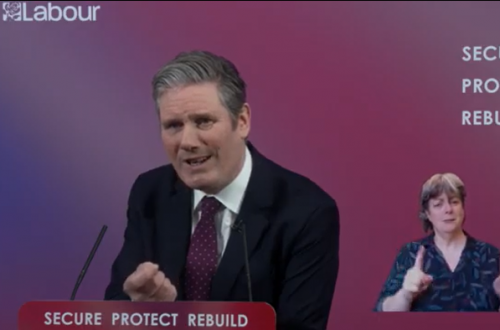This is a guest post by Stephen Hoffman
One of a number of measures in a very poor Budget delivered by Osborne last Wednesday was a tax on fizzy drinks, which left a sour taste in my mouth. You can find out more about the offending policy here. The public health lobby, which Osborne has caved into, have become so evangelical about their mission to ensure the state makes us all healthy that they ignore the impacts their policies have on the poorest in society. They are also blind to the gaping holes in the policy. This all comes about as the concept of individuals being able to govern their own lives is also a bridge too far for them.
There are a range of alternatives drinks created by the industry, such as Coke Zero, Pepsi Max and Coke Light offered by the industry without the need of government intervention. The main problem which many people, including me, have, is that they taste awful. Therefore, people like me decide that whilst Sprite or Coke may not be good for us, we know it gives us pleasure. This choice shows that we are not being forced to buy fizzy drinks, but have an array of choices to decide from.
Furthermore, A sugar tax simply does not work. Several studies indicate that sugary foods and drinks are price inelastic, meaning that there isn’t a significant reduction in consumption with a price increase. One of the main reasons why The Danish Government ruled out a sugar tax was because it had already had its hand burned by a tax on saturated fat, with at least 10% of all fat tax revenues going on administrative costs. Additionally, as highlighted in this report, one survey demonstrated that only 7% of Danes reduced their consumption of butter, cream and cheese, whilst it had no effect on 80% of Danes’ shopping habits. Given that the principle of a sugar tax is along the same line as a tax on saturated fats and mooted taxes on caffeine, I believe there is a similar likelihood of a sugar tax in UK leading to the same results.
To make a significant change, you would have to at least double or triple the price. If that did happen, as we have seen with the illegal trade in cigarettes and prohibition of alcohol in the US in the 1920s, people will look for cheaper products or change to other energy intensive foods and drinks. For sugar this could be aspartame, which is worse for you.
A sugar tax is also regressive, hitting the poorest the hardest. This is because people who have less money spend a higher amount of the money they do have on food and drink. Indeed, the bottom fifth in the UK already spend twice as much as the top fifth on sin taxes and £1 in every £8 they spend already goes on sin taxes. Another tax will cause poor people to suffer unnecessarily. It is a tax on poor people who are already overtaxed.
It’s important to highlight what is actually happening with sugar consumption in the UK. From 2002 – 2014 consumption of sugar in the UK fell by 7.5%. That’s an inconvenient truth which doesn’t marry with the narrative of the likes of Jamie Oliver who want us to believe that without the magical panacea of a sugar tax, we will be going to hell in a sugary handcart. That’s not to say there isn’t a problem with obesity, but that is mainly due to a significant decline in physical activity, especially when it comes to simple things like walking and cycling. This is set out well in a report by Chris Snowdon, which can be found here.
These are just some of the reasons why I believe a sugar tax doesn’t work and hits the poorest the hardest. It does all this whilst robbing us of the ability to control our own destiny by making our own decisions. Bad in principle and not workable in practice, a rethink on the sugar tax is needed.
Stephen Hoffman is the Parliamentary Liaison Officer for Conservatives for Liberty and tweets at @thehoff102


